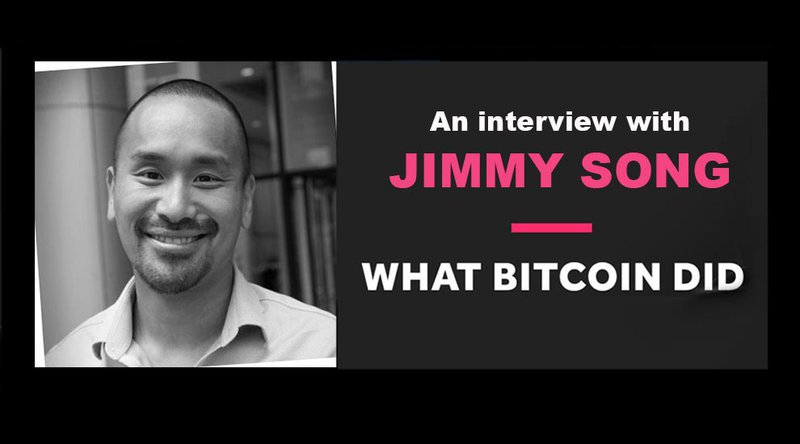What Bitcoin Did Gets Technical with Crypto-Educator Jimmy Song

<iframe style=”border: none” src=”//html5-player.libsyn.com/embed/episode/id/7132345/height/90/theme/custom/autoplay/no/autonext/no/thumbnail/yes/preload/no/no_addthis/no/direction/backward/render-playlist/no/custom-color/87A93A/” height=”90″ width=”100%” scrolling=”no” allowfullscreen webkitallowfullscreen mozallowfullscreen oallowfullscreen msallowfullscreen></iframe>
On the latest episode of What Bitcoin Did, host Peter McCormack interviews Jimmy Song, a consultant in blockchain education, to take an in-depth look at a relatively recent incident in the world of cryptocurrency and use that as an example to segue into a deeper discussion on the possible trajectories of Bitcoin itself.
Discussing the CVE 2018 17144 bug, Song begins with a technical discussion of how the bug functioned: Essentially, it allowed a bad-faith actor to spend the same quantity of cryptocurrency multiple times in the same transaction. The issue, however, is that a successful execution of this bug is very difficult and costly to perform successfully, can fail quite easily due to factors totally beyond the scammer’s control, and ultimately could have deleterious effects on the entire price of bitcoin if successfully carried out.
Song went on to describe how the threat of this potential bug was used as a talking point in the back-and-forth debate between the various forks of Bitcoin, with some advocates of such altcoins claiming that different forks (such as Bitcoin Cash) were more vulnerable to this form of attack. These assertions were then used to further claim that the “maximalist” community should shoulder some sort of responsibility to protect these forks, in what Song described as a cynical play to bring more attention to the hard forks.
Moving on from a discussion about the politics of the various hard forks of Bitcoin, Song discussed other possible security measures to protect cryptocurrencies against similar bugs: from those related to the technical, cybersecurity aspect to questions like what sort of banking protocol would offer the best defense against this sort of sleight-of-hand attack.
The discussion between McCormack and Song goes into a great deal of technical detail, and the whole dialogue is available now. Additionally, many episodes of What Bitcoin Did, as well as the other podcasts on the LTB Network, are live on the network’s website.
This article originally appeared on Bitcoin Magazine.


